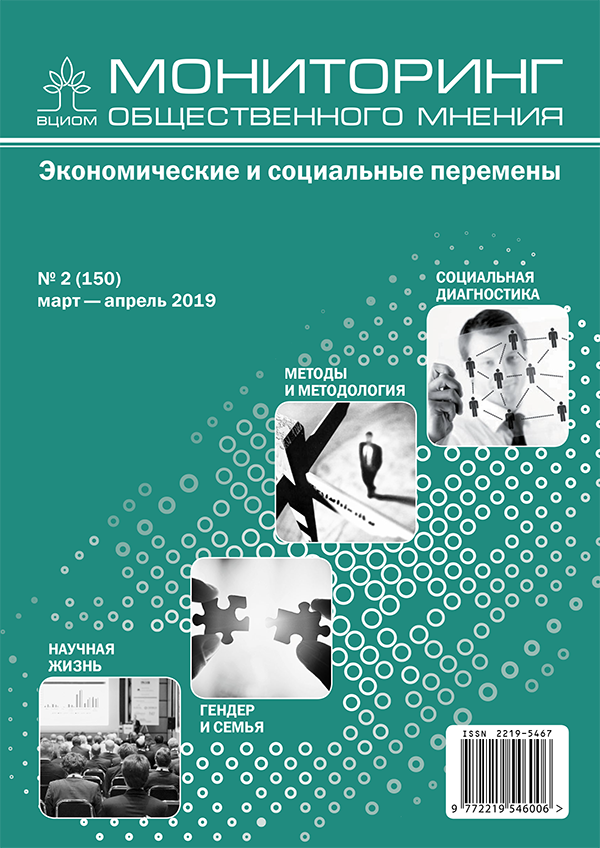The unfinished gender revolution
DOI:
https://doi.org/10.14515/monitoring.2019.2.10Keywords:
gender revolution, family, sexuality, Russian gender orderAbstract
The article devoted to a conceptualization of Russian actual gender order. For these means, the author uses I. Kon’s idea of three revolutions, as a social process of rebuilding the gender relationships in the sexual, familial, educational and occupational spheres. Also, the author introduces an analytical framework to interpret in a new way a specificity of gender relationships (re)production in modern Russia, and identify factors supporting and preventing the change in relations between men and women in the public and private spheres towards greater gender equality, i.e. gender revolution. Using G. Esping-Andersen’s concept of multiple equilibrium and S. Duncan’s concept of institutional bricolage we can analyze the relationship between the Soviet experience of gender policy and modern trends of individualization and pluralization. When we review the sexual, gender and family revolutions in the historical context, we can find out how the (re)invention of tradition proceeds in the modern context, how the modern gender basing on the Soviet experience of gender policy and how strong it is, and how much post-Soviet transformations and global trends contributed to its specificity.






